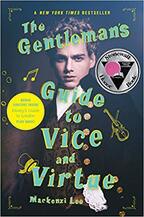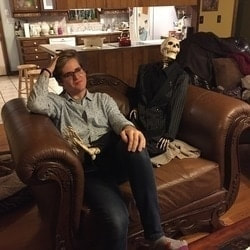Sacred Chickens
Menu
SACRED CHICKENS
 Sometimes I have trouble letting go of books. I get attached and then when I’m finished reading it, I immediately want to begin reading it again. It doesn’t happen with all books of course; I can thoroughly enjoy a book but when it’s done, I don’t feel the pull that I feel with others. This book had an especially strong pull for me. I would’ve been perfectly happy to read this book for a month or to have never ending sequels for the rest of my life. Unfortunately, that doesn’t appear to be the case, but I am very happy to have read it. I can say that this has been my favorite book this year so far. That’s a bold statement because I do read tons of books, but this has set a very high standard for me. Given that, I have been a little apprehensive to write this review, not because I didn’t want to, but I was afraid that I wouldn’t do it justice, and there’s also a ton I want to discuss. Furthermore, the book deals with a lot of issues, but it centers around Henry, “Monty,” Montague in 18th century England. He’s the epitome of vice: he drinks too much, he gambles, and he frequently wakes up in the beds of both men and women. He’s about to be forced to take over his father’s estate, but before that happens, he’s going on a yearlong, “Grand Tour,” of England along with his best friend Percy, who he’s also madly in love with. If that’s not enough for you, there’s also pirates, alchemy and Monty running naked through the gardens of Versailles (an event I am very sorry to have missed). There’s so much that I can talk about with this book, but the main thing I want to discuss is the relationship between Monty and Percy. This is a little different than a lot of queer and gay relationships that I’ve read or seen depicted. For one, there was no sex. In my opinion, sex is relied upon way too much by authors when depicting LGBTQIA relationships, which I think speaks to the broader oversexualization of the community in general. There’s more to a relationship than sex, but in regard to the gay community it sometimes seems that authors don’t realize that. Ok, now I’m not saying that sex depicted between characters is a bad thing, but the reason I bring it up is because it speaks to the talent of the writer that most of the books romance is in hurried glances and accidental touches, and it’s one of the most romantic books I’ve ever read. She managed to write an intense and passionate relationship, without relying on sex to depict intimacy, which I thought was brilliant. It was actually what set their relationship apart, because Monty I think managed to visit at least half the beds in England, so for him not to have immediately tackled Percy was especially distinctive. Furthermore, another trope the author thankfully avoided was tragedy, also known as the, “Kill your gays” trope. I didn’t realize how used to this I was until I realized that I was dreading finishing the book because I was worried either Percy or Monty was going to die, so I did something that most book lovers hate- I googled spoilers. In my defense, I could not enjoy the rest of the book without knowing that both of them lived. If they hadn’t, you’d be getting a very different review. I think it speaks to the fact that many writers feel the need to add drama to a story by killing off a main character, but that’s not always necessary, and I have to say it was really refreshing for that not to have happened, and one of the many things I appreciated about the book. However, although the book is heavily romantic, I would not put it in the category of romance. When I think of romance, I honestly think of Nicholas Sparks. Full disclosure, I hate Nicholas Sparks. Those books are unrealistic and rely on tired and repetitive tropes that aren’t romantic. I find them simplistic and reductive, so I hesitate to put this book in that category, because despite the fantastical elements of the novel, I found the relationship to be realistic, and the author included real world issues that were especially prevalent in the 18th century. Percy is multiethnic (his father is white, and his mother is Afro-Caribbean) and we not only see him confront racism but also Monty realizing his own white privilege by seeing Percy’s experience. With giving away too many spoilers, Percy has a disability, and we see them both confront that as well. It is set in the 18th century, so Percy gets basically a crash course in medicine. It gives the book a more authentic feel; really though, tackling these issues makes the book feel very current in many ways, since society is still grappling with them. So as I have demonstrated, this book deals with a lot of issues, but it does it in a really organic way. This is a multi-layered story, and I could talk about it for hours. I could write so much more on the subject, but honestly you should read this book. It flew by, which is good in some ways and bad in others, because I wasn’t ready for the story to be over. I rarely reread books, but I will probably do so with this one. With books like this, they can be hard to review (which is a compliment I swear!). it can be hard to decide what to talk about, because I just want to sit here and ohh and ahh over every scene. But it really is one of the best books I’ve read in awhile, and in such negative times, the overall positive and playful tone was a welcome relief.  Bio Jarad is the co-administrator and writer for Sacred Chickens, attends college at MTSU, loves tea and coffee, and tries to spend every spare second reading. He recently developed an interest (some might say obsession) with gardening. Jarad is an English major with a concentration in literature. Bless his heart! Let's all light a candle for him and send him happy thoughts!
0 Comments
Leave a Reply. |

Click Photo above to buy ebook or paperback from Amazon.
Here's the link to Barnes and Noble Or order through your favorite independent bookstore! Categories
All
|
 RSS Feed
RSS Feed